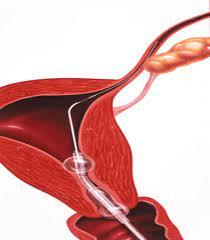Effective Treatments for Blocked Fallopian Tubes - Your Path to Pregnancy
Overcoming Infertility with the Right Treatment for Blocked Fallopian Tubes
Introduction:
Blocked fallopian tubes can be a major obstacle for couples trying to conceive. Fortunately, there are several effective treatment options available to help overcome this challenge and increase the chances of achieving a successful pregnancy. In this blog post, we will explore the different treatment methods for blocked fallopian tubes, their benefits, and success rates.

Understanding Blocked Fallopian Tubes
The fallopian tubes play a crucial role in conception as they provide a pathway for the egg to travel from the ovary to the uterus. However, when one or both fallopian tubes are blocked or damaged, the sperm cannot meet the egg, resulting in infertility. Common causes of blocked fallopian tubes include pelvic inflammatory disease, endometriosis, previous surgeries, or scarring from infections.
Treatment Options for Blocked Fallopian Tubes
Medications: In some cases, medication can help treat underlying conditions that may be causing the blockage, such as infections or inflammation. Antibiotics or anti-inflammatory drugs may be prescribed to reduce inflammation and clear any infections, allowing the fallopian tubes to function properly.
Surgery: Surgical interventions, such as tubal cannulation or salpingectomy, can be performed to remove the blockage and restore the normal function of the fallopian tubes. Tubal cannulation involves inserting a catheter into the fallopian tube to clear the blockage, while salpingectomy involves removing the affected tube altogether.

In Vitro Fertilization (IVF): For severe cases of blocked fallopian tubes, where natural conception is unlikely, IVF can be a highly effective treatment option. IVF involves retrieving eggs from the ovaries, fertilizing them with sperm in a laboratory, and then transferring the resulting embryos into the uterus. This bypasses the fallopian tubes and increases the chances of pregnancy.
Benefits and Success Rates
The choice of treatment for blocked fallopian tubes depends on the severity of the blockage, the underlying cause, and individual circumstances. Each treatment option has its benefits and success rates.
Medications: Medications can be a non-invasive option to address infections or inflammation. They may help improve the condition of the fallopian tubes, allowing for natural conception. Success rates vary depending on the specific cause and individual factors.
Surgery: Surgical interventions can effectively remove the blockage and restore fertility. Success rates depend on factors such as the location and extent of the blockage, the presence of additional fertility issues, and individual factors. Your fertility specialist will assess your case and provide more specific information.
In Vitro Fertilization (IVF): IVF offers a higher success rate for couples with blocked fallopian tubes. By bypassing the tubes, it provides a direct route for the fertilization and implantation of embryos. Success rates for IVF vary based on factors such as age, overall health, and the quality of eggs and sperm.
Conclusion:
Blocked fallopian tubes can present a significant challenge for couples trying to conceive. However, with the right treatment approach, fertility can still be achieved. Whether through medication, surgical intervention, or IVF, there are options available to overcome this obstacle and increase the chances of a successful pregnancy.
Consult with a fertility specialist to determine the most suitable treatment option for your specific case. Remember, you're not alone on this journey, and medical advancements continue to offer hope for couples facing blocked fallopian tubes.
We are associated with experienced and highly skilled medical professionals. We use the latest medical technology available in the world and we provide medical services in collaboration with JCI & NABH Certified hospitals only. Our services include various types of treatment and organ restructuring and transplant.
